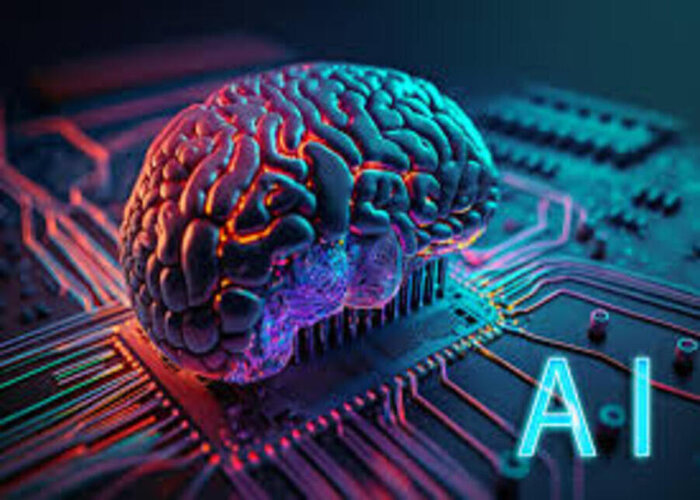Artificial Intelligence: The Future of Innovation and Society

Artificial Intelligence refers to the simulation of human intelligence in machines that are programmed to think, learn, and make decisions. The concept emerged in the mid-20th century when scientists began developing algorithms and systems that could mimic cognitive processes. Today, AI has evolved far beyond its initial stages, encompassing many capabilities, from simple rule-based systems to complex neural networks.
What is Artificial Intelligence?
At its core, AI involves the creation of systems capable of performing tasks that typically require human intelligence. These tasks include recognizing speech, understanding natural language, visual perception, and problem-solving.
Brief History of Artificial Intelligence
The history of AI dates back to the 1950s, with pioneers such as Alan Turing, who developed the Turing Test to measure machine intelligence. Over the decades, advancements in computing power and data availability have propelled AI research, leading to breakthroughs in machine learning and deep learning.
2. Types of Artificial Intelligence
AI can be categorized into three main types based on its capabilities:
Narrow AI (Weak AI)
Narrow AI refers to systems designed to perform specific tasks, such as facial recognition or language translation. These systems operate within predefined parameters and do not possess general intelligence.
General AI (Strong AI)
General AI, also known as Strong AI, is the theoretical form of AI that has human-like cognitive abilities. It can understand, learn, and apply knowledge in a wide range of contexts, just like a human.
Superintelligent AI
Superintelligent AI is a hypothetical form of AI that surpasses human intelligence. It could solve problems that are currently beyond human capabilities, posing both immense opportunities and potential risks.
3. How Artificial Intelligence Works
AI is powered by several key technologies:
Machine Learning
Machine Learning (ML) is a subset of AI that involves training algorithms to recognize patterns and make predictions based on data. It is widely used in applications like recommendation systems, fraud detection, and predictive analytics.
Deep Learning
Deep Learning is a more advanced form of ML, utilizing neural networks with multiple layers to process vast amounts of data. It powers technologies such as self-driving cars and voice assistants.
Neural Networks
Neural networks are computational models inspired by the human brain. They consist of interconnected nodes (neurons) that process information in layers, enabling machines to “learn” from experience.
4. Key Applications of Artificial Intelligence
AI has found its way into numerous industries, transforming the way businesses and individuals operate:
AI in Healthcare
In healthcare, AI assists with diagnostic tools, personalized treatment plans, and even robotic surgery. Machine learning algorithms help doctors analyze medical data more efficiently, leading to quicker and more accurate diagnoses.
AI in Finance
The finance industry uses AI for automated trading, fraud detection, and risk management. AI algorithms can analyze market data in real time, making investment decisions that humans could not achieve as rapidly.
AI in Manufacturing
Manufacturing processes have been optimized with AI, leading to increased efficiency and reduced costs. Robots powered by AI can perform tasks such as assembly, quality control, and predictive maintenance.
AI in Everyday Life
From smartphones to home assistants like Alexa or Google Assistant, AI plays a significant role in enhancing everyday life by offering convenience and automation.
5. Advantages of Artificial Intelligence
AI offers a myriad of benefits across various sectors:
Efficiency and Speed
AI can process large volumes of data quickly, leading to faster decision-making and problem-solving.
Cost Reduction
By automating repetitive tasks, AI reduces operational costs in industries like manufacturing, healthcare, and finance.
Improved Decision-Making
AI-driven data analysis leads to more informed and accurate decisions, which can significantly improve outcomes in business and personal life.
6. Ethical Considerations in Artificial Intelligence
Despite its benefits, AI raises important ethical concerns:
Data Privacy and Security
As AI systems rely on massive datasets, protecting personal information and ensuring data security becomes crucial.
Bias in AI Algorithms
AI algorithms can inherit biases present in the data they are trained on, leading to discriminatory outcomes in areas like hiring, lending, and law enforcement.
The Role of Transparency
Transparency in AI decision-making is essential to building trust with users. Ethical AI development requires systems to be understandable and explainable.
7. The Future of Artificial Intelligence
The future of AI promises even more groundbreaking innovations:
Autonomous Vehicles
Self-driving cars are on the horizon, with AI making real-time decisions based on road conditions and traffic patterns.
AI in Space Exploration
NASA and other space agencies are exploring how AI can assist in analyzing data from distant planets and optimizing spacecraft navigation.
AI in Climate Change Solutions
AI can help tackle climate change by optimizing energy use, predicting natural disasters, and analyzing environmental data to develop sustainable practices.
The Future of Pharmacy: Trends Shaping Medicine Delivery App Development







